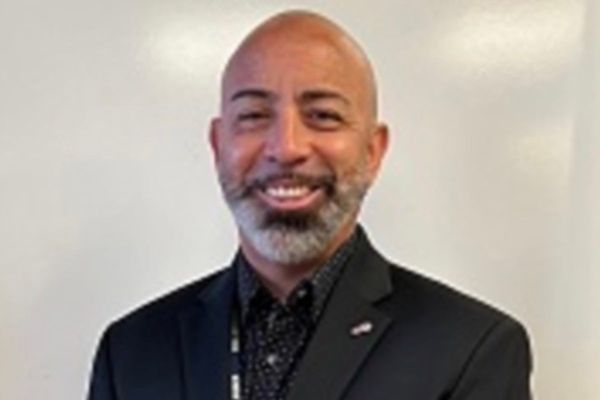
Kellie Sloane has vowed to take the fight to the Minns Labor government, focussing on families and cost of living, after she became the third woman to lead the New South Wales Liberals.
The Liberal party room unanimously endorsed the former journalist and former non-profit CEO to to replace Mark Speakman as leader of the NSW opposition.
Natalie Ward from the upper house was re-elected as deputy leader.
Sloane, a first-term MP, won the safe seat of Vaucluse in 2023 after previously seeking preselection unsuccessfully for the seat of Willoughby following Gladys Berejiklian’s resignation as premier.
At her first press conference, Sloane, 52, emphasised her regional background – she grew up in the Barossa Valley in South Australia – and her role as a wife and mother of three teenaged boys.
She played down her lack of experience in politics, promising she would collaborate and work as team with her colleagues.
Sign up: AU Breaking News email
“This is a Labor government that is lacking direction and certainly lacking on delivery,” Sloane said.
“And we need to fix that for New South Wales, because New South Wales deserves better. You know, this state used to be the engine room of the country, and now we’ve got builders leaving to go to Queensland … because there is no pipeline of infrastructure in this state.”
However, like Speakman, Sloane will battle to overcome the brand damage that has been inflicted by the ideological infighting within the Liberal party in Canberra, which has led to support for the Liberals at the federal level and in several states slumping to well below a 30% primary vote – a level that makes it virtually impossible to win government.
Asked about how she would overcome this Sloane said: “They are, you know, an opposition that’s just come out of an election defeat. They’re finding their way, but I’ve got great faith that they’ll find their true north, as we have here.”
Unlike the federal Liberals, Sloane said NSW would be sticking with a net Zero target – the Liberals in NSW voted this week to stick by the goal – and brushed over the fact that her coalition partners the NSW Nationals have voted to abandon it.
Instead she framed the energy transition as a cost-of-living challenge.
“Energy prices have gone up by about 40%. We need to address those concerns in New South Wales families. We need to provide an equitable rollout of renewables, but we also need to be mindful that our priority has to be energy reliability and affordability, and we need to keep the lights on,” she said.
Sloane is part of NSW’s powerful moderate faction and enjoys support from several of the party’s elder statesmen, including Nick Greiner and John Howard, and powerful factional figures, including Matt Kean, now the head of the Climate Change Authority.
She faces particular challenges in steering the party’s housing policy. Speakman had largely embraced the Minns government’s transport-oriented development policy, which aims to encourage medium- and high-density housing near train stations.
Speakman described himself as an Adimby – “appropriate development in my back yard” – and under his leadership, the Coalition backed changes to planning laws.
But Sloane has been more circumspect, particularly when it comes to development in her own seat of Vaucluse in Sydney’s east.
Yesterday she insisted that she was pro-housing like her predecessor.
“Every community needs to do the heavy lifting when it comes to housing, whether it’s my community or whether it’s Western Sydney, or whether it’s regional New South Wales,” she said.
“I’m on the record already as saying I support Woollahra station. What I don’t support is sloppy planning, planning without a business case, planning without community infrastructure,” she said.
“So, yes, I am pro-housing. Yes, we need to build for New South Wales, for young families, for key workers. So I want to be a chippy or a contreter’s best friend,” she said.
But there were several questions that Sloane was unable to answer, including whether she would re-impose a wages cap, whether she would change the party’s opposition to Minns’ workers compensation reforms and how she planned to pay for future metro expansions.







